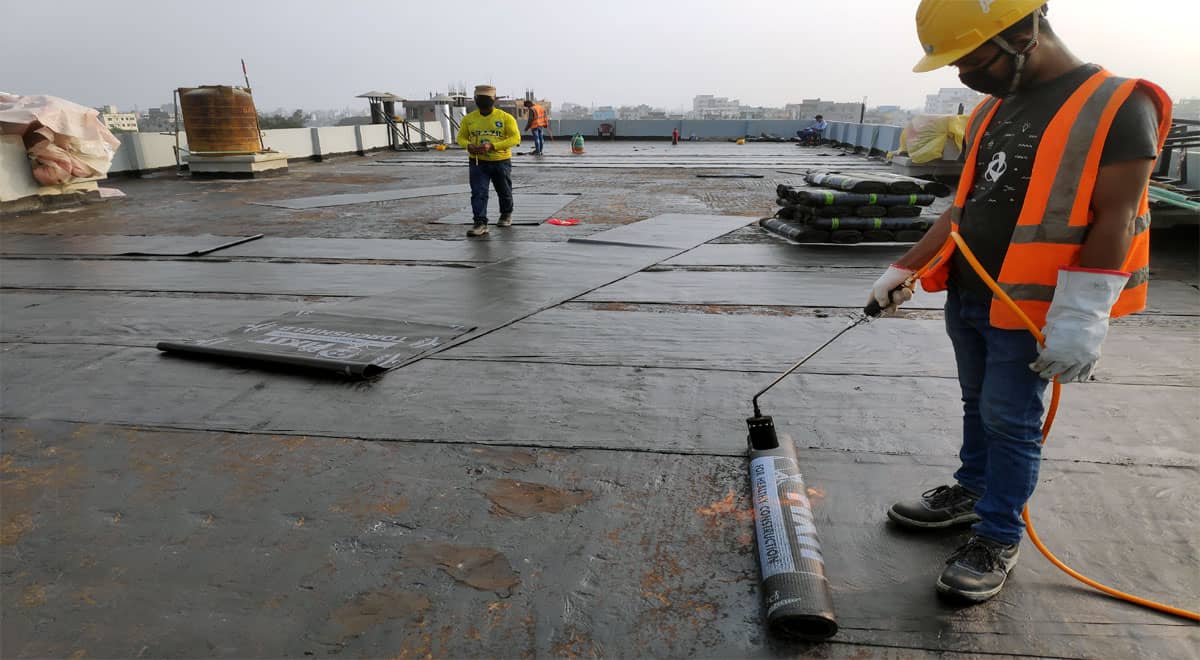Water proofing is a vital aspect of home maintenance that often gets ignored until it’s too late to prevent. Many homeowners think that as long as their roofs are intact and their cellars are not damp, they are protected from water damage. However, the reality is that water can trickle into the unforeseen areas, leading to expensive repairs and health hazards stemming from mold and mildew. Grasping the significance of waterproofing for every home and building is necessary for safeguarding your investment and ensuring a safe environment for your family.
In this comprehensive guide to waterproofing, we will examine everything you need to know to safeguard your property from water damage. From the clues that show your home may need waterproofing to the various methods available, we will provide insights into how waterproofing can protect you thousands in repairs. Whether you’re thinking about DIY solutions or wanting to hire professionals, this detailed resource will help you decide wisely and debunk common misconceptions about waterproofing. Come along as we explore the world of waterproofing and learn how to keep your home safe, dry, and mold-free.
Why Sealing Against Water
Waterproofing is a vital part of home maintenance that often gets overlooked. It functions as a preventive measure against various forms of water damage, which can cause significant foundation problems and high repairs. When water penetrates a structure, it can compromise foundations, damage walls, and promote the growth of mold and mildew. By purchasing waterproofing solutions, homeowners can safeguard their properties from these dangers and ensure a healthy living environment.
One of the key reasons waterproofing is crucial is its role in preserving property value. A home that is void of water damage is more desirable to potential buyers and can obtain a higher price in the real estate market. On the other hand, a home with water concerns can repel buyers and result in a lower sale price. Consistently waterproofing various areas of a property, such as basements, roofs, and bathrooms, can increase the longevity and overall appeal of the home.
Moreover, waterproofing enhances energy efficiency. When buildings are effectively sealed against water intrusion, they are better insulated, which can result in lower heating and cooling costs. This not only reduces homeowners money on utility bills but also advocates for sustainable living approaches. Overall, waterproofing is not just about stopping damage; it is an commitment in the property’s future, its value, and its effectiveness.
DIY vs. Expert Water Sealing
When evaluating water sealing options for your home, one of the first decisions you'll face is whether to take on the project on your own or hire a specialist. Do-It-Yourself waterproofing can be an appealing choice for homeowners looking to reduce money and manage of the process. Basic tasks like putting on water-resistant coatings to walls or sealing minor cracks can often be done with few tools and materials. Many homeowners find reward in saving costs while learning valuable skills through practical work.
However, there are multiple key aspects to keep in mind when undertaking DIY waterproofing projects. For instance, improper application of sealing products may lead to expensive mistakes or insufficient protection against water damage. Additionally, certain waterproofing jobs, especially in basements or foundations, may require specialized knowledge and tools that the typical homeowner might not possess. This can result in unexpected issues that could have been easily managed by a experienced professional.
On the other hand, hiring a professional waterproofing contractor brings expertise and know-how that can ensure thorough protection for your home. Professionals can quickly identify problem areas and recommend tailored options that align with your specific needs. While the initial costs may be higher, their work often saves you money in the long run by preventing serious water damage and the associated repair costs. Ultimately, your choice between DIY and expert waterproofing should consider your skills, the complexity of the project, and your budget.
Signs Your Property Needs Waterproofing
One of the most critical signs that indicate your property needs to be waterproofed is the existence of dampness on surfaces or flooring. If you notice damp patches, especially in areas like basements or crawl spaces, this shows that water is penetrating your house. Additionally, flaking paint or wallpaper can also indicate moisture problems. It’s crucial to address these issues promptly to prevent additional damage and mold growth, which can be dangerous to your health.

A further sign is the smell of mildew or dampness in your home. If french drain installation have a wet odor, it indicates that water is confined in those spaces, creating an ideal environment for mold and bacteria to thrive. Ignoring these signs can lead to a more extensive infestation and expensive repairs down the line. Regularly checking for these odors can keep your living environment safe and clear of possible health hazards.
Finally, if you encounter regular flooding or water accumulation around the property, it's a obvious sign that waterproofing is required. Even minor water intrusion during heavy rainstorms can build up over time, leading to significant damage to your foundation and structure. Outdoor structures and landscaping that exhibit erosion or deterioration from water exposure also emphasize the need for effective waterproofing solutions. Taking action when you first observe these signs can save you thousands in repairs and protect your investment in your home.
